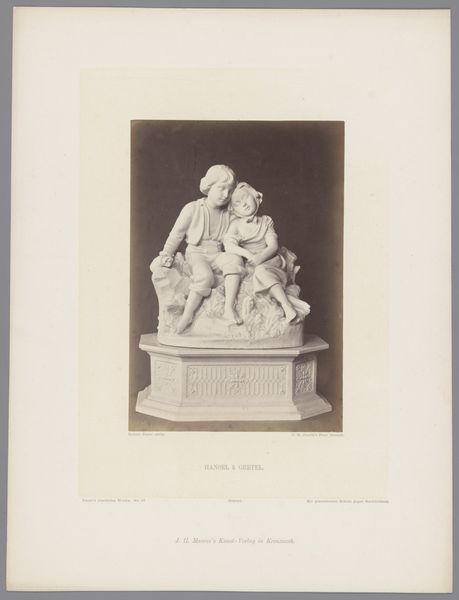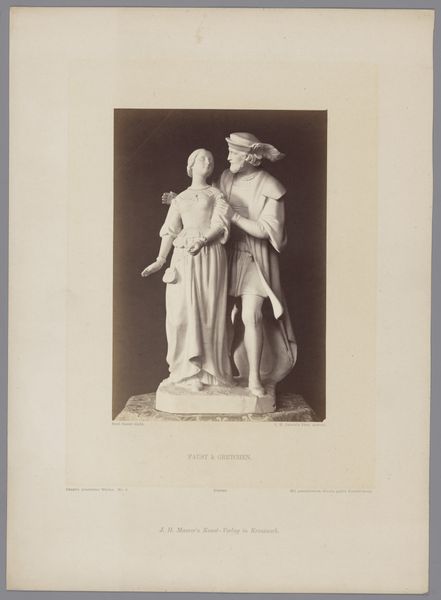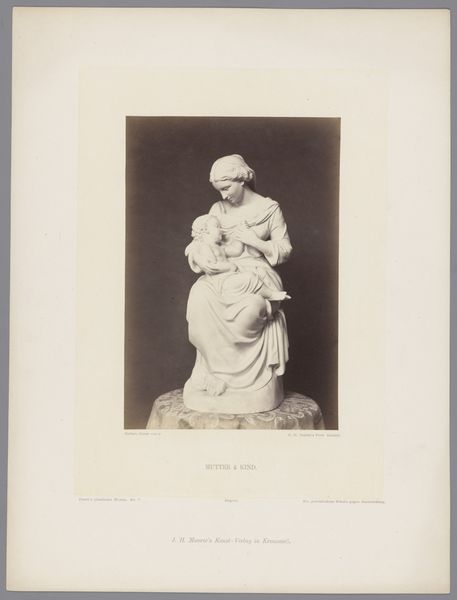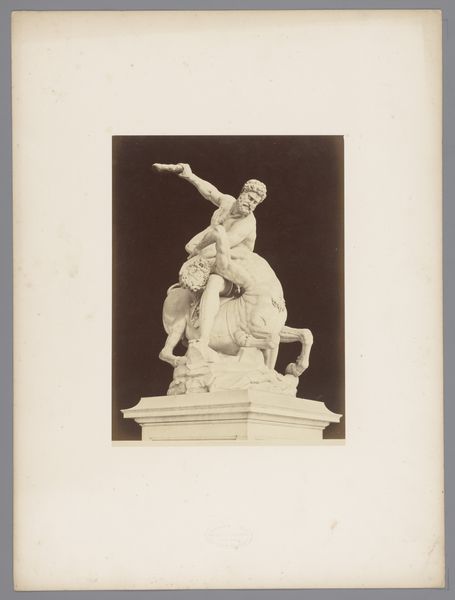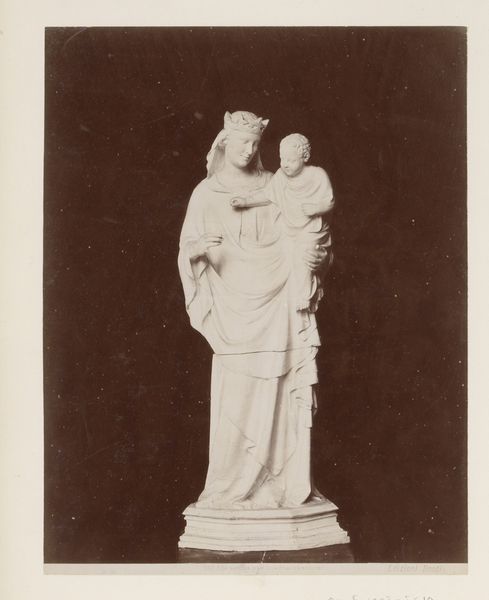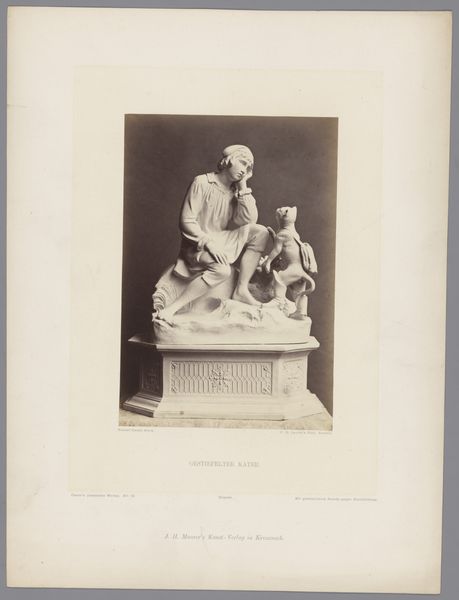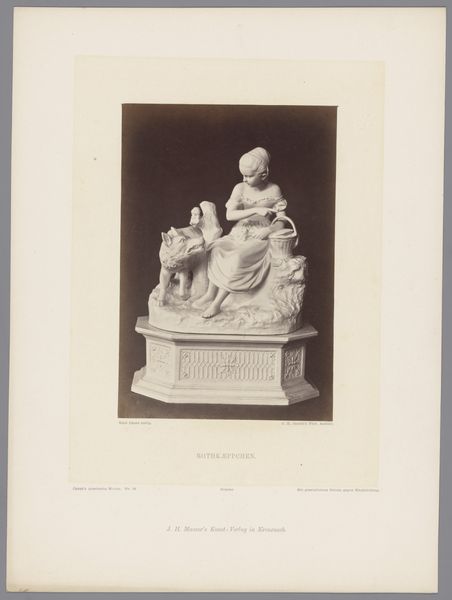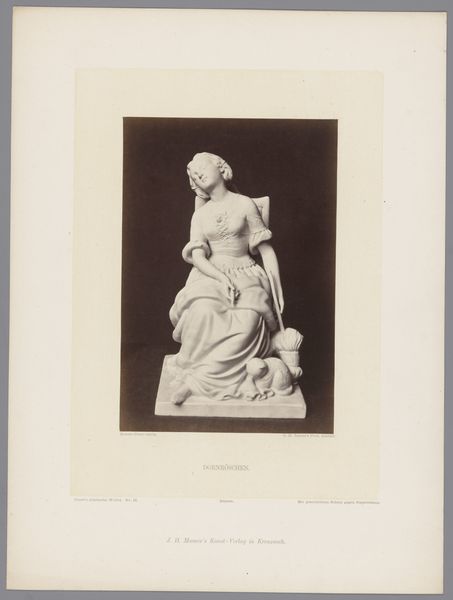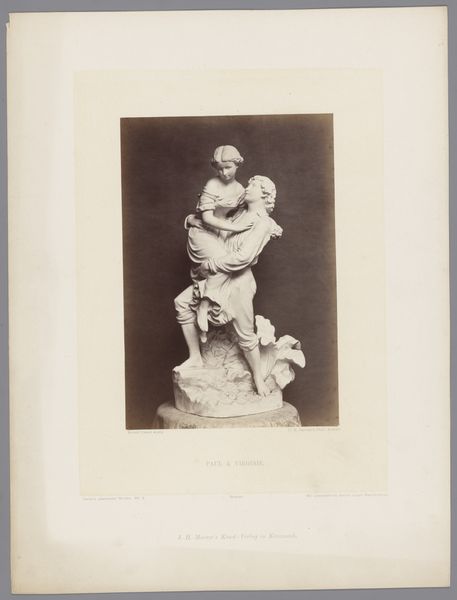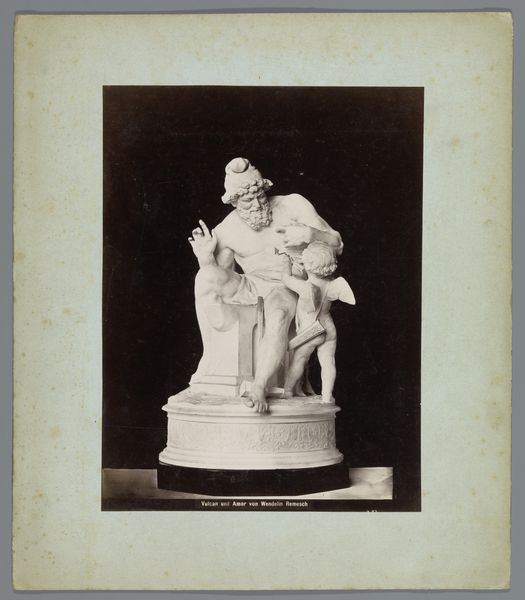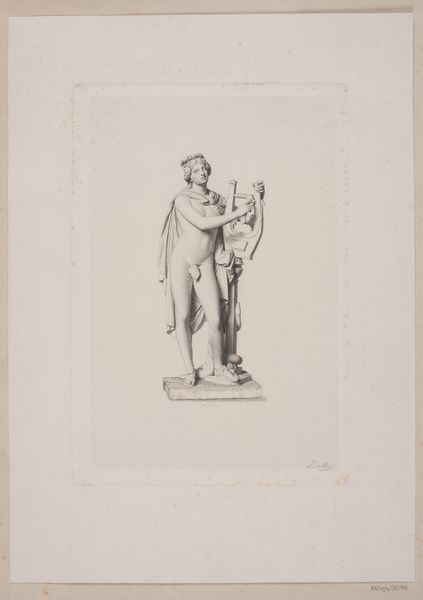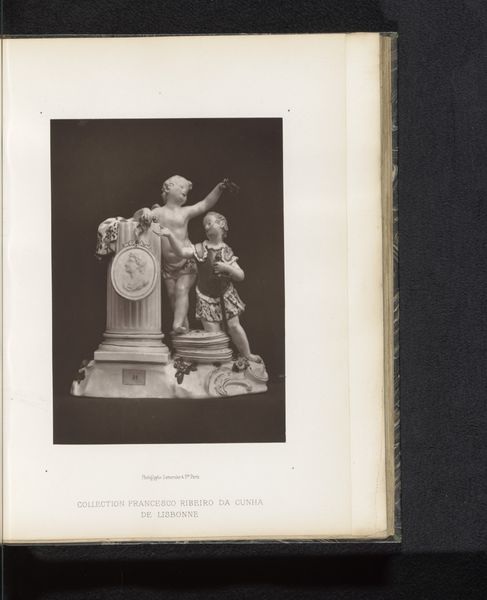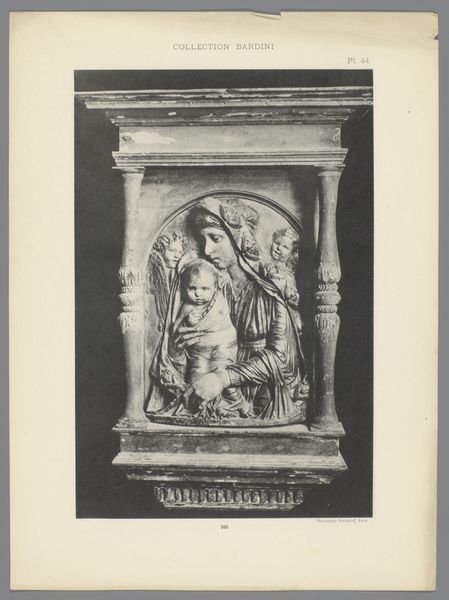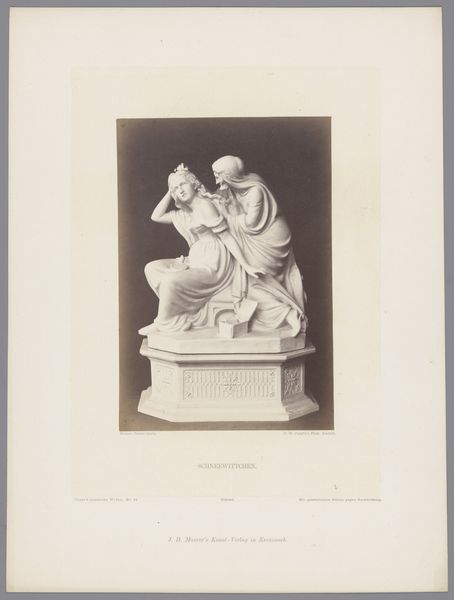
Dimensions: height 346 mm, width 264 mm
Copyright: Rijks Museum: Open Domain
This is Carl Heinrich Jacobi’s photograph of Robert Cauer’s sculpture “Hermann and Dorothea,” a work made sometime in the 19th century. The sculpture, and thus the photo, illustrates Goethe's epic poem about a young couple during the French Revolution. The figures, frozen in their embrace, tell a silent story of displacement and resilience. Dorothea, a refugee, embodies the era’s upheaval. Cauer's choice to depict this moment speaks to the period's fascination with romantic nationalism, idealizing rural life and traditional values as a response to rapid social change. Note how the sculpture offers a comforting, if somewhat sanitized, narrative amidst the chaos of war, celebrating love and community. Jacobi’s photograph captures the emotional core of Cauer's sculpture, preserving a moment of tenderness against a backdrop of historical trauma. It reminds us of the human capacity for connection. It encourages us to reflect on the stories we tell ourselves about home, belonging, and the enduring power of love in times of crisis.
Comments
No comments
Be the first to comment and join the conversation on the ultimate creative platform.
